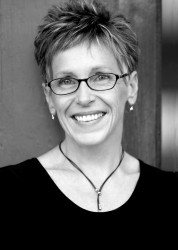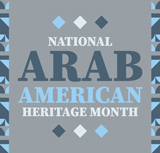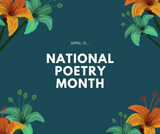 Day 5 of 28 Authors, 28 Variations on a List brings us a decidedly Western list from Echo, Oregon (pop. 700) author Pamela Steele, whose first novel, Greasewood Creek, was recently released by Counterpoint Press. Steele has been the recipient of Fishtrap and Jentel Arts fellowships. Paper Bird, her poetry collection, was published by Wordcraft of Oregon in 2007. Her favorite local store is The Bookloft in Enterprise, Oregon.
Day 5 of 28 Authors, 28 Variations on a List brings us a decidedly Western list from Echo, Oregon (pop. 700) author Pamela Steele, whose first novel, Greasewood Creek, was recently released by Counterpoint Press. Steele has been the recipient of Fishtrap and Jentel Arts fellowships. Paper Bird, her poetry collection, was published by Wordcraft of Oregon in 2007. Her favorite local store is The Bookloft in Enterprise, Oregon.
 To my massage therapist who confided she’s homesick for the rainy side of Oregon: At This Distance by Bette Lynch Husted (Wordcraft of Oregon, 2010). Dearest Aspen, this poetry collection gives voice to the land and people of this place where you’ve arrived: eastern Oregon. Out here, our voices sometimes get lost in the noise and glare of those brightly-lit places west of the Cascades. Often, people passing through here comment on the expansiveness of the landscape, but the people who have lived here—really lived here—as Husted has, know something more: the depth of the land. See page 22, “Heartwood.” The first line goes: “We carry stories underneath the skin. These poems draw our stories to the surface, into the light.” Please stay.
To my massage therapist who confided she’s homesick for the rainy side of Oregon: At This Distance by Bette Lynch Husted (Wordcraft of Oregon, 2010). Dearest Aspen, this poetry collection gives voice to the land and people of this place where you’ve arrived: eastern Oregon. Out here, our voices sometimes get lost in the noise and glare of those brightly-lit places west of the Cascades. Often, people passing through here comment on the expansiveness of the landscape, but the people who have lived here—really lived here—as Husted has, know something more: the depth of the land. See page 22, “Heartwood.” The first line goes: “We carry stories underneath the skin. These poems draw our stories to the surface, into the light.” Please stay.
 To the Louisville poet and, lately, Facebook friend from graduate school who couldn’t understand why I wrote all those poems about fly fishing, for gosh sakes, or why I bothered, but briefly, with that ’72 Buick Le Sabre: The Car That Brought You Here Still Runs: Revisiting the Northwest Towns of Richard Hugo by Frances McCue (University of Washington Press, 2010). Joseph, this book is a fine companion to Hugo’s The Triggering Town. Remember? In grad school, we had to buy that book—the one I actually kept and still read, the one that urged me to go out to find poems rather than wait for them to arrive. In this one, McCue and photographer Mary Randlett have visited the towns—the final resting place(s) of engines— that triggered many of Hugo’s poems. McCue’s essays and anecdotes about Hugo, Randlett’s black and white photographs and Hugo’s own words create a sort of Lonely Planet Guide for road poets. Quick! Grab your notebook and that Lucinda Williams cd. Point your car west.
To the Louisville poet and, lately, Facebook friend from graduate school who couldn’t understand why I wrote all those poems about fly fishing, for gosh sakes, or why I bothered, but briefly, with that ’72 Buick Le Sabre: The Car That Brought You Here Still Runs: Revisiting the Northwest Towns of Richard Hugo by Frances McCue (University of Washington Press, 2010). Joseph, this book is a fine companion to Hugo’s The Triggering Town. Remember? In grad school, we had to buy that book—the one I actually kept and still read, the one that urged me to go out to find poems rather than wait for them to arrive. In this one, McCue and photographer Mary Randlett have visited the towns—the final resting place(s) of engines— that triggered many of Hugo’s poems. McCue’s essays and anecdotes about Hugo, Randlett’s black and white photographs and Hugo’s own words create a sort of Lonely Planet Guide for road poets. Quick! Grab your notebook and that Lucinda Williams cd. Point your car west.
 For my son, who has moved too far away: The Last Best Place: A Montana Anthology, edited by William Kittredge and Annick Smith (University of Montana Press, 1988). Mattie, this is the first book I checked out of the Wallowa Public Library when I got to Oregon all those years ago. While I waited for you and your sisters to get here, I read these stories and poems, and then I read them again, and a while ago, I found a used copy in a book store. Likely, I couldn’t afford it at the time, but I bought it anyway. Maybe I should’ve just stolen it from the library. This isn’t just a Montana book. It should be required reading for anyone planning to remain more than seven days anywhere West of, say, Fort Collins. Maybe you?
For my son, who has moved too far away: The Last Best Place: A Montana Anthology, edited by William Kittredge and Annick Smith (University of Montana Press, 1988). Mattie, this is the first book I checked out of the Wallowa Public Library when I got to Oregon all those years ago. While I waited for you and your sisters to get here, I read these stories and poems, and then I read them again, and a while ago, I found a used copy in a book store. Likely, I couldn’t afford it at the time, but I bought it anyway. Maybe I should’ve just stolen it from the library. This isn’t just a Montana book. It should be required reading for anyone planning to remain more than seven days anywhere West of, say, Fort Collins. Maybe you?
 For a cowboy that I love: Where Rivers Change Direction by Mark Spragg (University of Utah Press, 1999). D., this is a collection of essays, but Spragg is one of my favorite fiction writers, too. Remember that Redford movie, An Unfinished Life? All Spragg. The essays in this collection honor people who work on the land, shape their lives around it rather than the other way around—people like you.
For a cowboy that I love: Where Rivers Change Direction by Mark Spragg (University of Utah Press, 1999). D., this is a collection of essays, but Spragg is one of my favorite fiction writers, too. Remember that Redford movie, An Unfinished Life? All Spragg. The essays in this collection honor people who work on the land, shape their lives around it rather than the other way around—people like you.
Spragg is a master of the sentence. There is a rhythm to these recollections of growing up on a Wyoming dude ranch (sound familiar?) that begs me to read them aloud, even when I’m alone—especially when I’m alone and struggling to scratch out something on paper myself. As I wrote my novel, I returned to this book many times to lose myself in its language—sort of the way I lose myself in your stories. With love.
 To my Comp 121 student who wrote that incredible son-of-an-Irish-Catholic-sheep rancher story, and then another one—the same guy who claims he can’t possibly write a whole book: Architecture of the Novel: A Writer’s Handbook by Jane Vandenburgh (Counterpoint, 2010). Jim, full disclosure: The author was my workshop teacher. She taught me how to write a novel. It got published. You can write one, too. Just read this book.
To my Comp 121 student who wrote that incredible son-of-an-Irish-Catholic-sheep rancher story, and then another one—the same guy who claims he can’t possibly write a whole book: Architecture of the Novel: A Writer’s Handbook by Jane Vandenburgh (Counterpoint, 2010). Jim, full disclosure: The author was my workshop teacher. She taught me how to write a novel. It got published. You can write one, too. Just read this book.



I, too, am a Mark Spragg enthusiast. He’s a literary painter of life in the west today. As are you. Thank you for your voice and for sharing a list of other amazing voices.